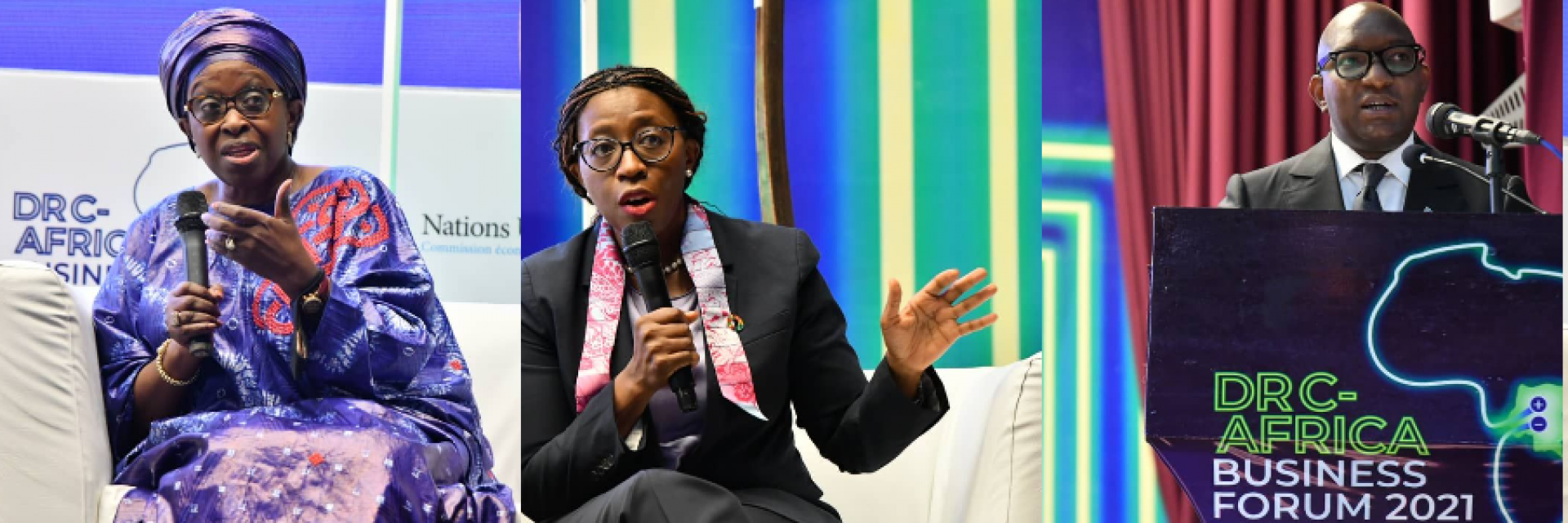Kinshasa/Addis Ababa, 26 November 2021 (ECA) – As the global transition towards renewable energy and carbon neutrality spurs demand for electric vehicles to replace fossil fuel engines, the Democratic Republic of Congo (DRC) has embarked on a project to build a cathode precursor plant.
This will enable the country to harness its mineral resource wealth to sustainably commence low-emissions-production of battery precursors an input of lithium-ion batteries, used in electric vehicles, as explained by Vera Songwe, UN Under-Secretary-General and Executive Secretary of the Economic Commission for Africa (ECA):
“The DRC is at the heart of the battery value chain, as it is home to about 70% of world's cobalt reserves. The country’s mining sector currently accounts for 98% of exports, 18% of GDP, and 11% of jobs. If the DRC captures 20% of the market share for battery production, it will add around US$54 billion to its income and raise its GDP tremendously.”
Ms Songwe was speaking at the opening of the DRC-Africa Business Forum held on 24-25 November in Kinshasa under the theme, “Fostering the development of a battery electric vehicle (BEV) and renewable energy industrial value chain and market in Africa.”
A new study by BloombergNEF shows that building a 10,000 metric-ton battery precursor plant in the DRC would cost $39 million. A similar plant in the US, China and Poland would cost an estimated US$ 120 million, $112 million and $65 million, respectively. The study indicates that a precursor plant in the DRC would produce almost 30% lower emissions than in China, given proximity to the mineral resources needed to produce the precursors.
The battery and electric vehicles (BEV) value chain will represent approximately a US$ 8.8 trillion market opportunity by 2025, and US$46 trillion by 2050, according to research by BloombergNEF report on “The Cost of Producing Battery Precursors in the DRC.”
President Felix Tshisekedi said DRC’s minerals put the country in a “strategic position to influence the global renewable energy transition.” He urged his African counterparts and global stakeholders to “seize this opportunity” to jointly invest in increasing Africa’s share of the BEV and renewable energy value chain, while creating jobs at home and fostering regional integration.
In the same light, President Hakainde Hichilema of Zambia stated, “countries that produce electric cars must see opportunities to collaborate with Africa in technology and finance for mutual benefit.” He deplored the fact that eight out of world’s top 15 producers of battery minerals are in Africa, yet the development of BEVs is happening elsewhere.
The importance of local beneficiation and localisation of the value chain was emphasised by Markus Thill, Bosch Africa’s President and VP of the African Association of Automotive Manufacturers (AAAM), who announced that “AAAM is working with AfCFTA Secretariat to produce at least 5million vehicles in Africa for Africa by 2025.”
The DRC-Africa Business Forum featured a policy dialogue with the presidents of DRC and Zambia, and high-level representatives from Tanzania, Morocco, ECA, Afreximbank, Africa Finance Cooperation, African Development Bank Group, Bosch Africa, African Union Commission, The Arab Bank for Economic Development in Africa, and AVZ Minerals Ltd.
The dialogue focused on “Fashioning the policy space and business climate for a battery, electric vehicle and renewable energy value chain and market in Africa.” Panelists were unanimous in their support for DRC’s plans for a cathode precursor plant, especially given the ease of access to minerals, which in turn reduces cost of production and curbs carbon footprint while maximising yields for investors and the people of the DRC and Africa at large.
The study on “The Cost of Producing Battery Precursors in the DRC” carried out by BloombergNEF was commissioned by the UN Economic Commission for Africa, Afreximbank, Africa Development Bank Group, the Africa Finance Corporation (AFC), the Arab Bank for Economic Development in Africa, the African Legal Support Facility (ALSF), and the UN Global Compact.
Issued by:
Communications Section
Economic Commission for Africa
PO Box 3001
Addis Ababa
Ethiopia
Tel: +251 11 551 5826
E-mail: eca-info@un.org

